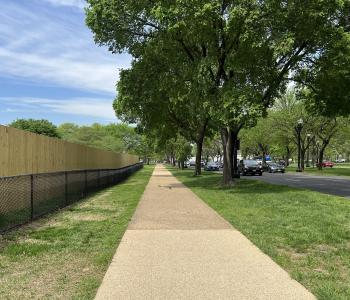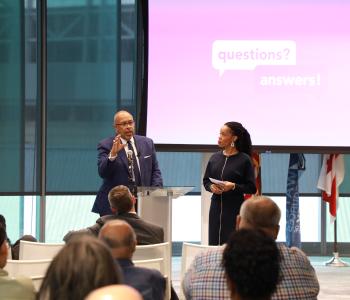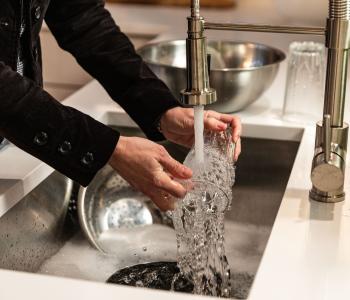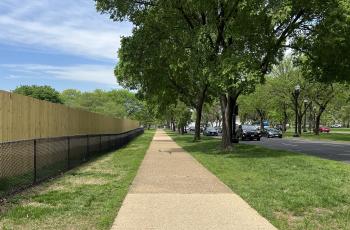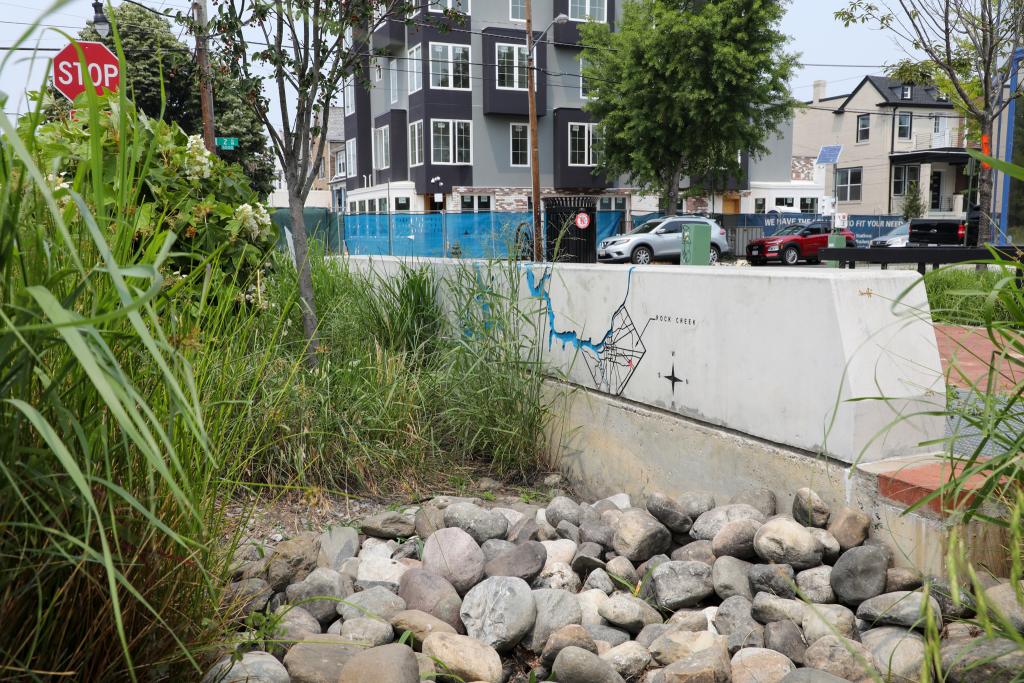WASA Multi-Million Dollar Biosolids Project Put on Hold
Officials at the District of Columbia Water and Sewer Authority (WASA) have decided, after an extensive and rigorous evaluation, to reject the single bid received on the construction phase of the Egg-Shaped Digester project. The bid for that phase of the project was approximately 64 percent over WASAs 2006 budget estimate. The total project cost has, in fact, has continued to escalate from the originally budgeted $148 million in 2000 to $350 million in 2006 to an estimated $600 million in 2007.
The use of egg-shaped digesters is a progressive and effective technology for handling biosolids (treated residue from the wastewater treatment process) generated at WASAs Blue Plains Advanced Wastewater Treatment Plant. Currently, more than 1300 wet tons of biosolids are hauled each day from the 150-acre site for reuse as fertilizer.
The eight, 108-foot-tall egg-shaped digesters, at 4.5 million gallons each, represented the largest single installation of its type in the world. The technology would reduce biosolids volume by 50 percent and cut in half the 70 trucks a day used to haul biosolids to agricultural sites in surrounding areas. The project was scheduled to begin in 2006, with the first digesters in service by 2010.
The decision by the WASA Board of Directors to defer the project until market conditions improve was based on an independently conducted economic analysis and an internal cost-benefit evaluation. Both assessments concluded that the unusually tight construction market, an abnormal spike in material costs and the project length were major factors in limiting bids and doubling the cost. Moreover, an evaluation of bids on other heavy wastewater-related construction projects in the D.C. metro area show similar cost increases that are well above estimates.
As part of our ongoing biosolids management program, we will monitor the construction market, regulatory initiatives and evolving wastewater treatment technologies, WASA General Manager Jerry N. Johnson said. With this and other information collected over the next three years, a revised strategy for long-term biosolids management, which may or may not include the digesters, will be presented to our Board.
WASAs award-winning Biosolids Management Program has been recognized by the U.S. Environmental Protection Agency for its outstanding operations, technological advances, and promotion of the beneficial uses of municipal wastewater biosolids.
###


